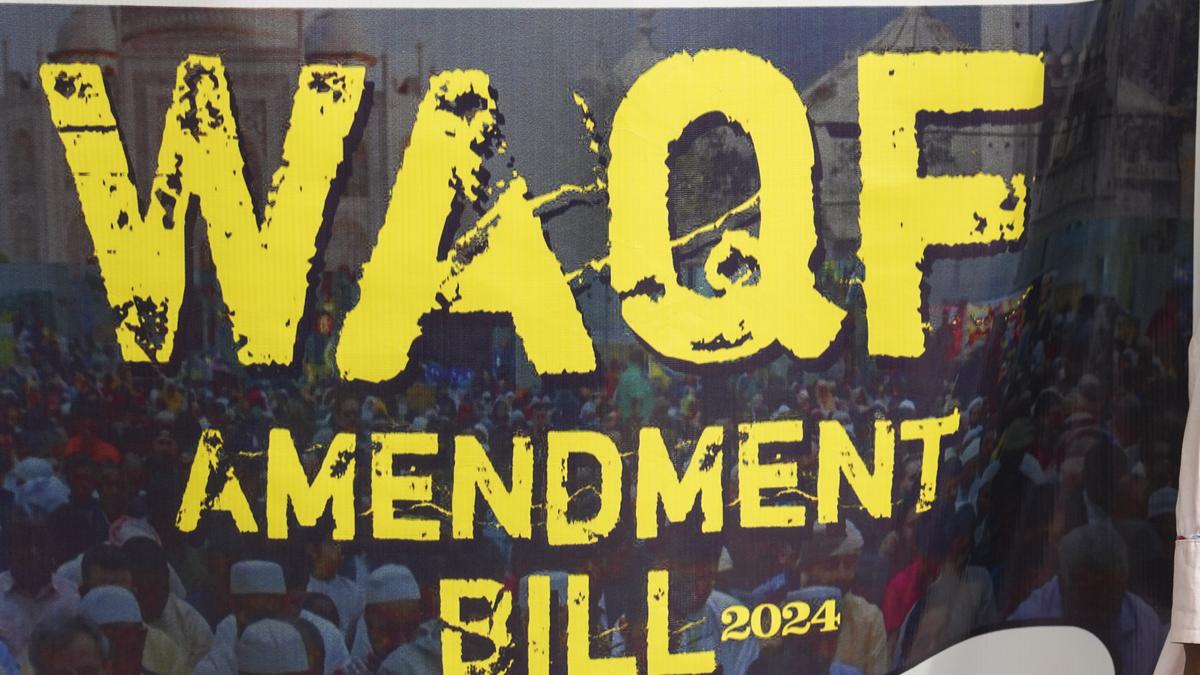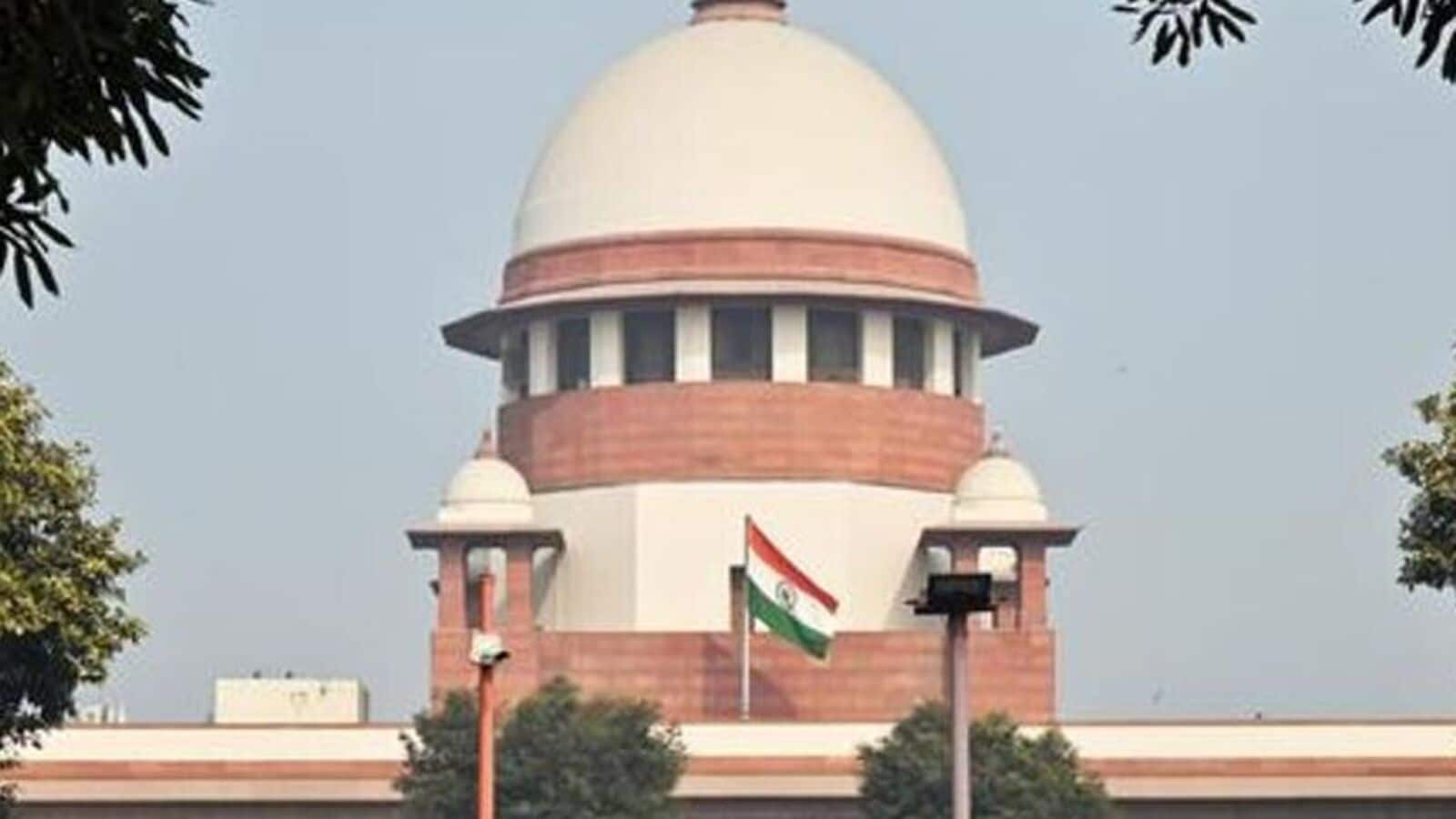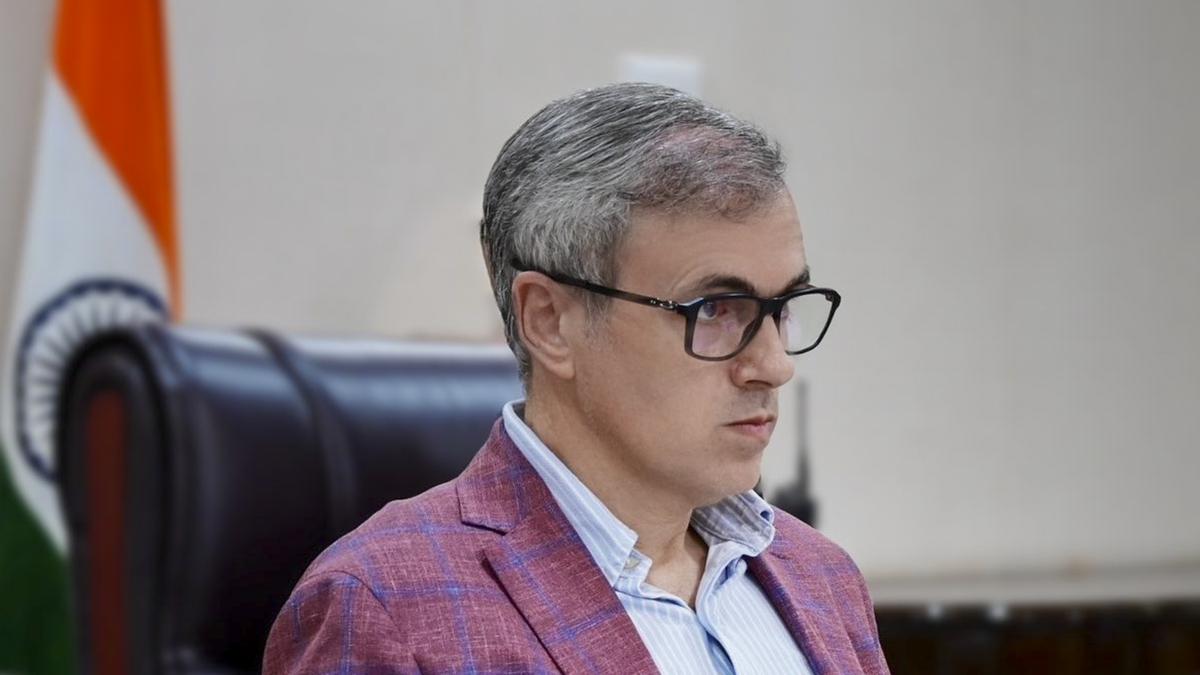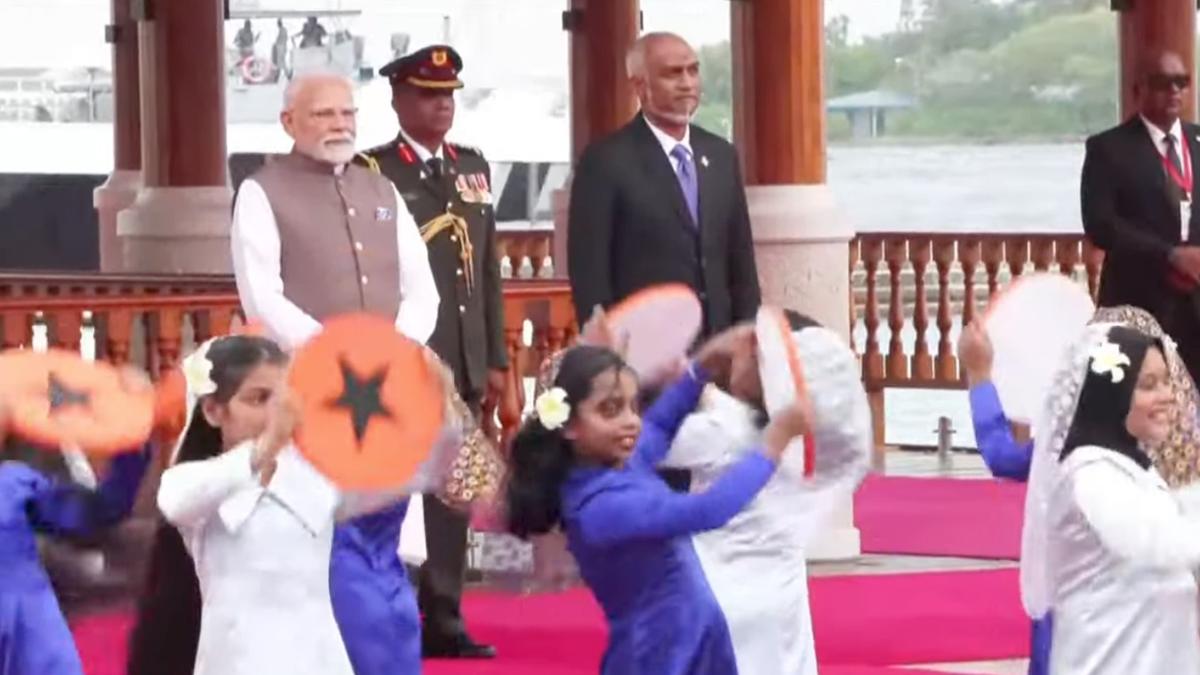
A poster against the Waqf (Amendment) Bill is displayed during a protest in Bengaluru on April 4, 2025.
| Photo Credit: PTI
Congress MP Mohammed Jawed challenged the Waqf (Amendment) Bill of 2025 in the Supreme Court on Friday, hours after the proposed law was cleared by the Parliament after a prolonged deliberation in the Rajya Sabha.
Lok Sabha MP and All India Majlis-e-Ittehadul Muslimeen (AIMIM) chief Asaduddin Owaisi has also separately challenged the Bill in the Supreme Court. Mr. Owaisi, represented by advocate Nizam Pasha, argued that Waqfs, their establishment, management and administration, form an integral aspect of the practice of Islam and entitled to Constitutional protection.
“While Parliament represents the will of the people, in today’s era of majoritarian politics, the Supreme Court has to discharge its constitutional duty as a sentinel on the qui vive to protect the minority from the tyranny of the majority,” Mr. Owaisi urged.
Also Read | Muslim MPs object to non-Muslims in Waqf Board
Mr. Jawed, who was a member of the Joint Parliamentary Committee on the Waqf (Amendment) Bill, said the provisions of the law imposed “arbitrary restrictions on Waqf properties and their management, thereby undermining the religious autonomy of the Muslim community”.
Also Read | Congress to challenge Waqf Bill soon in Supreme Court
“The amendments undermine property rights protected under Article 300A. By expanding state control over Waqf assets, limiting the ability of individuals to dedicate property for religious purposes, and subjecting Waqf properties to heightened scrutiny, the Act goes against the Supreme Court’s judgment that transferring control of religious property to secular authorities is an infringement of religious and property rights,” the petition contended.
It submitted that the provisions of the proposed law discriminated against Muslims by imposing restrictions which were not part of the governance of other religious endowments.
“For instance, while Hindu and Sikh religious trusts continue to enjoy a degree of self-regulation, the amendments to the Wakf Act, 1995, disproportionately increases state intervention in Waqf affairs,” the Lok Sabha MP from Kishanganj constituency in Bihar said.
He said the Bill in the present form violated Article 14 (right to equality), a Basic Feature of the Constitution.
Mr. Jawed, represented by advocate Anas Tanwir, said it introduced arbitrary classifications that lack any reasonable nexus with the objectives sought to be achieved, making it impermissible under the doctrine of manifest arbitrariness.
The provisions, he submitted, introduced “restrictions on the creation of Waqfs based on the duration of one’s religious practice. Such a limitation is unfounded in Islamic law, custom or precedent and infringes upon the fundamental right to profess and practice religion under Article 25”.

The restrictions further discriminated against recent converts to Islam who wished to dedicate their property for religious or charitable purposes, thereby violating Article 15.
The amendments omitted the concept of “Waqf by User” affirmed by the Supreme Court itself as a property which would attain the status of Waqf through long-standing religious use.
“By removing this provision, he submitted, the proposed law has disregarded established legal principles and has limited the ability of the Waqf Tribunal to recognise properties as Waqf based on historical usage, thereby violating Article 26, which guarantees religious denominations the right to manage their own affairs,” he said.
Further, an amendment to the composition of the Waqf Board and the Central Waqf Council has mandated inclusion of non-Muslim members in Waqf administrative bodies. The petition said this was an unwarranted interference in religious governance unlike Hindu religious endowments, which remain exclusively managed by Hindus under various State enactments.
“The enhanced role of state authorities in the Waqf administration impinges on the right of the Muslim community to manage its institutions. The Act shifts key administrative functions, such as the power to determine the nature of Waqf properties, from the Waqf Board to the District Collector. This transfer of control from religious institutions to government officials dilutes the autonomy of Waqf management and is against settled law,” the petition said.
The Act also modifies the process of dispute resolution by altering the composition and powers of Waqf Tribunals. It reduces representation of individuals with expertise in Islamic law, influencing the adjudication of Waqf-related disputes, it said.
Published – April 04, 2025 05:08 pm IST





